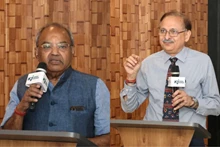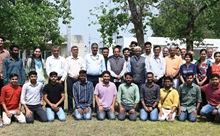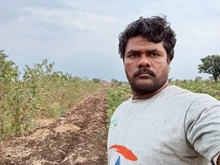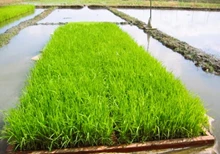
Scientists at Ludwig-Maximilians-Universitat Munchen and the Max Planck Institute for Plant Breeding Research in Cologne have decoded the highly complex genome of the potato for the first time, more than 20 years after the first release of the human genome.
This technically demanding study lays the biotechnological groundwork for faster breeding of more robust varieties, a long-term goal in plant breeding and an important step toward global food security.
When buying potatoes at a market today, buyers may end up with a variety that was already available more than a century ago. Traditional potato varieties are well-liked. Nonetheless, this example demonstrates a lack of diversity among the most common potato varieties.
That may soon change, as researchers led by geneticist Korbinian Schneeberger were able to create the first full assembly of a potato genome. This paves the way for the development of new, more robust varieties:
“The potato is becoming increasingly important in people’s diets all over the world, including in Asian countries like China, where rice is the traditional staple food. Building on this work, we can now implement genome-assisted breeding of new potato varieties that are more productive and resistant to climate change; this could have a significant impact on delivering food security in the coming decades.”
Findings of Study:
Potato plants are particularly susceptible to disease due to their low diversity. This can have severe consequences, most notably during the Irish famine of the 1840s, when nearly the entire potato crop rotted in the ground for several years, causing millions of people in Europe to starve simply because the single-variety grown was not resistant to newly emerging tuber blight.
During the Green Revolution of the 1950s and 1960s, scientists and plant breeders were successful in increasing the yields of many of our major crop staples, such as rice and wheat. However, the potato has not seen a comparable boost, and efforts to breed new varieties with higher yields have largely failed to this day.
The reason for this is simple but difficult to address: instead of inheriting one copy of each chromosome from both parents (as in humans), potatoes inherit two copies of each chromosome from each parent, making them a species with four copies of each chromosome (tetraploid).
Four copies of each chromosome mean four copies of each gene, making it extremely difficult and time-consuming to create new varieties with the desired combination of individual properties; additionally, multiple copies of each chromosome make the reconstruction of the potato genome a far greater technical challenge than the human genome.
The researchers used a simple yet elegant trick to overcome this long-standing barrier. Instead of attempting to distinguish the four, often very similar, chromosome copies, Korbinian Schneeberger, his colleague Hequan Sun, and other coworkers solved the problem by sequencing the DNA of large numbers of individual pollen cells.
In contrast to all other cells, pollen cells contain only two random copies of each chromosome, which aided in the reconstruction of the entire genome's sequence.
An overview of the complete DNA sequence of cultivated potato has the potential to greatly facilitate breeding and has long been a goal of scientists and plant breeders alike. Scientists can now more easily identify gene variants responsible for desirable or undesirable.
(Source: Max Planck Institute for Plant Breeding Research)











